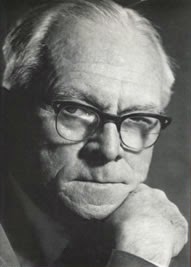Gabriel Marquez busy at his desk. AP photo from First Post....
Over forty
years ago when I was at Ilboru Secondary School, teachers encouraged education
in various ways. Take Mr Hopland from Norway. During my form two year he
offered weekly prizes if you read many books. I recall getting my share of
glory. It has since helped me in pursuit of knowledge. Or the beloved
literature Zimbabwean lady, Mama Victoria Chitepo. She used to sit in front of
our form three class, shouting sternly:
“Boys! I want
you all to look at my face! Boys! Come on!”
It was slightly
intimidating to keep a steady stare. Think. We averaged 16 and 17 years and
uneasy about females. The age of broken
innocence- when you begin viewing women other than respectful mothers, aunties,
sisters and grandmothers.
But Mama
Chitepo (pictured in the middle) had a peculiar manner of teaching. She was also foreign. Around that time, Ilboru Secondary School-
late 1960s to early 1970s... was a “palace” of international teachers. We had
Scandinavians, Americans, British, West, East and South Africans, not to
mention Tanzanians. Years of serious, serious education.
No wonder. ..
If you skim through the leadership of Tanzania
right now you won’t miss ex-Ilboru students in high ranking and powerful
positions. Examples.
War hero, retired Captain George Mkuchika, now a seasoned politician, began sharpening his use of words and leadership skills at Ilboru Secondary School, where he finished in 1969.
Pic from Kusini Blog...
Ex Captain George
Mkuchika, current Minister of State in President’s Office for Good Governance,
CCM and war hero of the anti- Idi Amin effort by Tanzania in 1979. Or, former
Prime Minister, Frederick Sumaye.
Or the TISS chief Mr. Rashid Othman- apart
from writing one of the best theatre plays ever shown at Ilboru; Othman won a
poetry contest and was whisked to the State House to meet President Nyerere and
personally congratulated in 1971- to celebrate ten years of Uhuru.
Literature and Music at Ilboru. Othman, seen here singing in the middle (as I strummed guitar), was a prolific composer of songs, poems and plays during our school days. First right, is late athlete, singer and fellow classmate the late Mecky Kiwelu.
Pic taken by photographer Emmanuel Yuda, 1972.
Anyway, Mama Chitepo was the wife of the then
Zimbabwe (ZANU) leader, Herbert Chitepo – assassinated in 1975. Was she
amazing? Listen. In the said classroom
we were studying a book by South African anti racist writer, Alan Paton, Cry
the Beloved Country.
- Author Alan Paton, one of the daring courageous whites who spoke out against Apartheid. Photo from NNDB site.
We learnt how ugly the apartheid system was and operated.
It would slightly parallel the horrors of Syria’s killings today. When
Mama Chitepo told us to sit straight and look at her- she was subtly guiding us
to concentrate and learn the use of words. Which is what literature is about...
In my school
days I studied with many teachers, some dead (Mr John Mdakie comes to mind) or
still alive like Mr Nizar Visram at Mzumbe. All taught us world affairs through
books, stories and literature. No wonder I ended up in the news room of the
national Swahili daily, Uhuru. And in there I came upon famous writers who were
once reporters, e.g. Colombia’s Gabriel Garcia Marquez. For many years the
novelist and journalist who died last week in Mexico interested me, chiefly
because he started out as a reporter.
Mmmh. But why celebrate Colombia’s Marquez from so
far away? After all he wrote in Spanish not in English or Swahili...
To start with
the man was a survivor. Just like Nelson Mandela or recently deceased - London
writer Doris Lessing- Marquez (affectionately known as “Gabo”) experienced the
ups and downs of living in a struggling third world or developing country.
No wonder his
2003 autobiography, has the ironic title: “Living to Tell the Tale.” On page 63 while recalling his childhood he
has this remarkable sentence. “Real life did me justice...”
Alas. This is
the theme that he carries throughout his books. He considered himself first and
foremost a reporter of life. Although
the 1927- born writer, was given many awards, including the Nobel Prize
for Literature in 1982 ( for “One Hundred Years of Solitude”), in his unique way of telling stories, known
as “magic realism”- the major thing Marquez contributed to our world was
information. What else do you expect from a writer? The things he wrote were
not far from our own Africa. Take the idea of instant justice whereby a thief
is stoned and killed on the spot.
Marquez writes in his autobiography:
“He was the
first dead person I had seen...When I passed by seven in the morning on my way
to school, the body was still lying on the sidewalk in a patch of dried blood,
the face destroyed by the lead that had shattered his nose and come out one
ear.” (Page 23).
We are used to
“piga mwizi” scenarios all across
African streets. Such stories litter the Marquez’s world in Latin America. A
continent that has struggled and continues to straggle along similar lines as
Africa. Five novels, seven collections of articles, six short stories
collections and four novellas (long short stories)- is what he left us, not
mentioning other articles and poems in multiple periodicals. Since he had to
live in dangerous Columbia where drugs lords and political heavyweights ruled,
Marquez hid his tales in metaphors but was unafraid to speak out. No wonder he
became friends with many figures including ex-Presidents Bill Clinton and Fidel
Castro.
-Published in Citizen Tanzania...Friday 25th April, 2014...






No comments:
Post a Comment